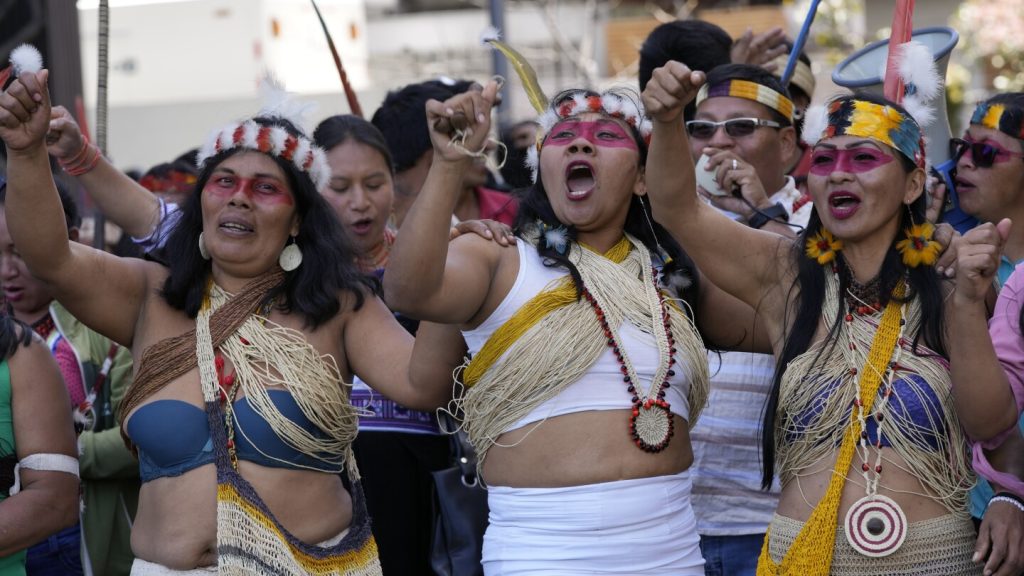One year after the people of Ecuador voted to halt oil drilling in Yasuni National Park, nothing has been done to start shutting down operations. The government is now seeking a five-year extension for the state-run oil company to get out, frustrating supporters of the shutdown, including the Waorani Indigenous group whose territory overlaps the park. The lack of compliance with the referendum has raised concerns about the government’s commitment to safeguarding nature and Indigenous communities in the region.
Yasuni National Park, known for its biodiversity, is home to the Waorani people and two Indigenous communities living in voluntary isolation. Last year, almost 60% of voters supported a referendum to end drilling in the park, aiming to protect the environment and Indigenous communities. However, the government’s request for a five-year extension to close the oil block has raised doubts about its willingness to uphold the referendum’s outcome and fulfill its promises to safeguard the region.
The constitutional court had given the government and state-run Petroecuador a year to shut down wells and infrastructure in the oil block known as 43-ITT. The government’s request for an extension of the deadline until at least 2024 has been met with criticism and concerns about the impact of oil operations on the environment and public health. The Ministry for Energy and Mines has not responded to requests for comments, but stated that they are working on an “exit plan” and dismantling the facilities in a responsible manner.
Experts suggest that the government’s decision to seek an extension for shutting down oil operations may be influenced by the need for revenue from the oil industry to address economic challenges, including domestic debt obligations and security issues. The impact of oil drilling on the environment and public health has been a longstanding concern, with frequent oil spills and health problems reported by communities living near oil operations in the northern Amazonian region. The government’s lack of budget allocation for dismantling oil infrastructure raises further doubts about its commitment to environmental protection.
The Union of People Affected by the Petroleum Operations of Texaco reports that the Ecuadorian Amazon has witnessed an average of 10 oil spills per month from 2016 to 2021, highlighting the environmental risks associated with oil drilling in the region. The Waorani people and other affected communities are calling for their inclusion in the decision-making process and are frustrated by the government’s lack of urgency in addressing the environmental and social impacts of oil drilling in the region. The ongoing struggle to halt oil operations in Yasuni National Park reflects broader challenges facing Indigenous communities and environmental conservation efforts in Ecuador.


